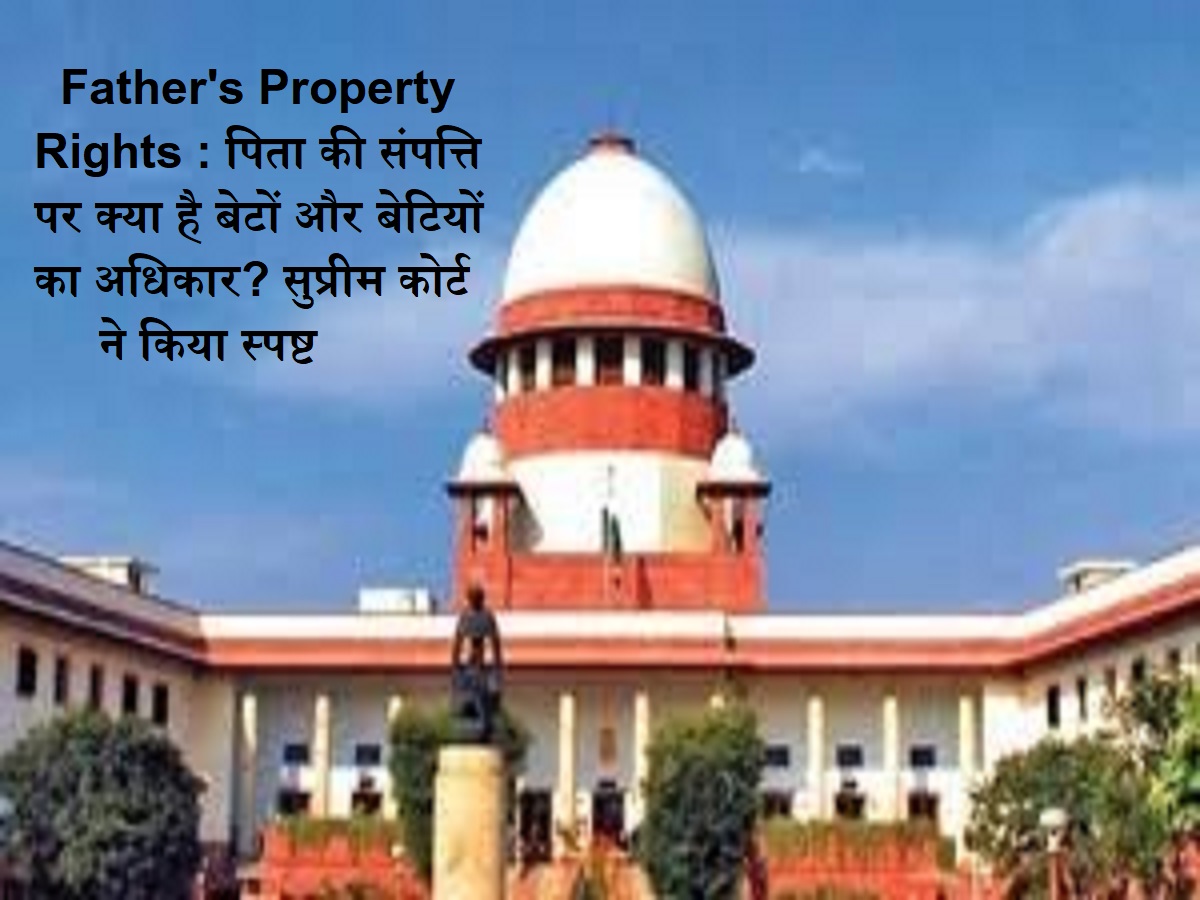News India Live, Digital Desk: Father’s Property Rights: In India, there are often disputes in families about father’s property. But the law on this subject and the Supreme Court is absolutely clear. Recently, the Supreme Court has clarified that sons or daughters get authority over the property of the father only when they are legally heir. His desire is most important in the case of property acquired by the father. Father can give his self-disharged property to anyone as per his wish.
Types of property: self-script and ancestral
Indian law divides property into two categories:
- Self-Acquired Property: This is the property that a person earns from his hard work and income. This property has full right to earn and he can give it to son, daughter or someone else as per his wish.
- Ancestral Property: This is the property that has been in the family for four generations. This includes the property received from the father, grandfather, great -grandfather or their ancestors. All heirs have joint rights over such property. The consent of all co-owners is necessary to sell or move it.
Important decision of Supreme Court
Recently, the Supreme Court clarified that the son has no birthright on the father’s self-abusive property. Whether the son is married or unmarried, he cannot claim this property without a father’s will. Justice R. The bench of Mahadevan said in the case Angdi Chandanna vs Shankar and others (Civil Appeal No. 5401/2025) that self-disqualified property does not automatically become the property of joint family, unless the owner allows it.
Mitakshara law and father’s property
Mitakshara Law plays an important role in property matters in India. According to this law, the son has authority in the ancestral property. But in the case of the father’s self-abusive property, the father himself is his only owner and is completely independent in his decision.
Will and Hindu succession act
If the person has created a will for his property, then the property is distributed accordingly. If no will is created, property is distributed under the Hindu Succession Act, 1956. This distribution process also vary to self-disaster and ancestral property. Families should know about these legal rules, so that disputes related to property can be avoided in future.
Big B Advice: Amitabh Bachchan’s Motivational Message: Things come in the right place in life only
